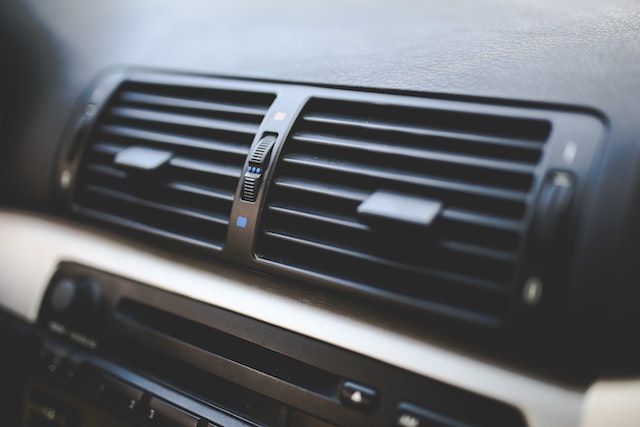
We rely on our cars to get us around every day or at least some days of the week, and we quickly notice if there are problems with our four wheels. One of the areas that can be most noticeable when the weather starts to heat up is any issues arising with the air conditioning in the car. All vehicle owners need to have a decent understanding of some of the common things that can go wrong in this area.
Defective Cooling Fan
If the cooling fan in your car’s air conditioning unit isn’t functioning correctly, you won’t get the cold air you’re expecting. These fans only run when excess heat needs to be removed from the engine, and they save considerable energy. When broken, the fans can’t remove this engine heat, so your car will only emit hot air, which you’ll soon notice.
The A/C cooling fan can break due to blown fuses, electrical problems, the build-up of too much debris in the machine, or if there’s a faulty cooling fan temperature switch installed. Qualified mechanics and other experienced contractors will need to test the cooling fan motor as well as all the wiring and connectors linked to it to diagnose and remedy the issue.
Refrigerant Leak
One of the vital components of automotive air conditioning is refrigerant. Unfortunately, leaks of this precious resource can occur, just like oil can seep out of a car’s engine. Over time, A/C seals can dry out, and the refrigerant can leak out, leading to lower levels. In turn, warm air blows out of the A/C rather than cool. Leaks are usually more of a winter issue than a summer one, though, so you may not notice immediately. Since air conditioning isn’t used much in winter and the system doesn’t run frequently, this is more the time when seals will dry out.
You might decide to examine this matter yourself by performing a leak test. Purchase some special leak detectors with sensors to help you locate the source of the leaks. Often, though, it’s best to head to your automotive dealership, a mechanic, or another specialist to address this problem.
Compressor Malfunction
A compressor is an essential part of working air conditioning, so if this is malfunctioning, you’ll notice your A/C isn’t cooling correctly or even working at all. You might have a defective compressor clutch, or the whole part may be compromised. In addition to noticing higher cabin temperatures than usual, also listen out for loud noises when the compressor is running.
In particular, you might hear high-pitched sounds that occur due to interior components of the compressor breaking or the machine’s sealed bearing seizing up. To investigate this issue, the A/C unit must be switched on, and you need to check the compressor and the clutch switch to see if they’re working. Also, it’s vital to see if the oil inside the compressor has been contaminated at all. If so, the unit will need flushing and fresh oil added.
Condenser or Radiator Problems
Another reason you might realize that your car’s air con isn’t working properly is if there’s something wrong with its condenser. When the condenser doesn’t work, the refrigerant vapors exiting this unit don’t get cooled correctly. This leads to constricted airflow, which can arise due to breakage or debris build-up.
It’s common for condensers to malfunction because they involve the use of many different tubes and seals. As you’d imagine, these items get wear and tear over the years. You can often diagnose a condenser problem by spotting oily, greenish residue leaking out.
On the other hand, you might have a vehicle with a defective radiator. When this component breaks, it can knock out numerous things, such as the air conditioning drive belt, wiring, or freon line. Issues with any of these can cause the whole system to malfunction. In either of these situations, you’ll likely have to replace the condenser or radiator completely.
With the right automotive ac tools and experience, you may be able to sort this out yourself, but it’s often best to get a mechanic to do this for you or take your car to a dealership for repair if it’s still under warranty.
Other common issues with vehicle air con worth considering are things like mildew smells, weak airflow, zero air coming out of the vents, and wet floorboards. You might have clogged air filters that need replacing, a broken expansion valve or blower motor, an obstruction in the unit’s evaporative coils, or numerous other factors that need addressing.
Get your car serviced annually by a trained professional and have them inspect your A/C system each time to help spot minor problems before they become bigger ones. Also, read your owner’s manual for troubleshooting and maintenance tips. The better you take care of your vehicle, the fewer concerns you should have over time with its air conditioning.